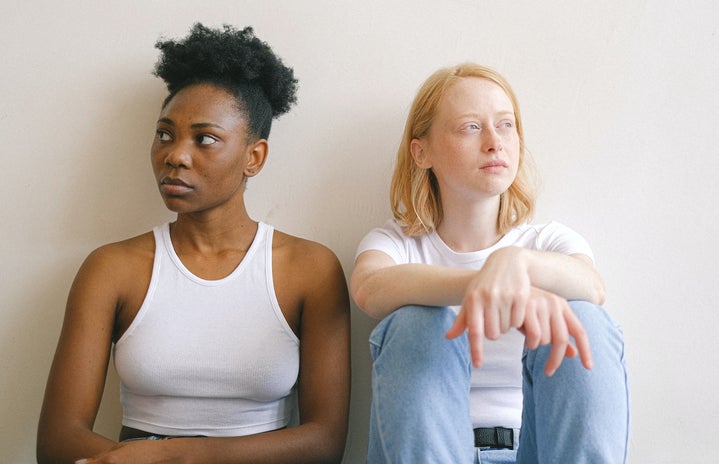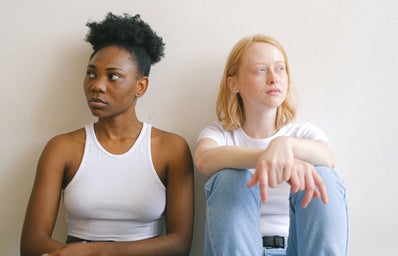Navigating relationships through your late teens and early twenties is hard enough without the added pressure of your sexuality being dumbed down to a ‘phase’ or part of a trend. Which sadly even in today’s culture bisexuality often is. Whilst sexual fluidity and freedom of sexual expression have come on leaps and bounds over the years it can still be challenging for young women to ‘come out’ or even be comfortable in identifying with the sexual orientation. So I’m hoping I can offer some help!
Whether it was from gazing at Kiera Knightley in Pirates of the Caribbean whilst in the cinema or secretly searching ‘girls kissing’ on Youtube as a kid. I knew I’d been attracted to girls for as long as I can remember. Yet despite this, it still took me till a few months ago to officially ‘come out’ to my friends and family as anything other than heterosexual. It may seem strange that it took so much time in a mostly accepting era however like many young women are; I was riddled with doubts. Would my friends feel uncomfortable at me coming out? Will I be fetishised? Will I be imposing on the LGBTQ+ community? Even to – how does lesbian sex even work?
Honestly, to combat this I had to dig down and tackle the subconscious beliefs I had programmed into me about homosexual relationships to start to enjoy and express my sexuality. I mean think about it: if you grew up around heterosexual relationships purely as your model for what a relationship looks like clearly, your internalised beliefs are going to be damaged and biased. Add on to this, the lack of sex education in schools surrounding the LGBTQ+ community, and obviously, you will run into problems regarding full self-acceptance. For me, I had simply never seen a lesbian relationship that I could relate to and as a by-product, I saw them as ‘intrinsically lesser’ than heterosexual relationships although I desired to be in one myself.
Most beliefs or fears of being judged are self-limiting more than anything so it’s time to open up. What was particularly refreshing and renewing for me was to look at any internalised homophobia I un-knowingly withheld. Internalized homophobia is what happens when we take the biases, prejudices, and hatred towards the LGBTQ+ community reinforced by society and turn these biases inward back on ourselves and whilst it can be quite upsetting to come to terms with the realisation that you dislike part of yourself unwillingly- confronting it is the first step to healing it.
Please remember (as I wish someone had told my younger self this) your feelings and your sexual fantasies are valid. When you can come to terms with yourself a crazy thing happens – everything begins to fall into place a lot more naturally. Instead of denying parts of yourself and your desires you can begin to enjoy them authentically.
This in turn makes dating and expressing who you want to love so much easier! As for actually exploring your sexuality as long as you are honest with people you meet of your expectations and experience you will find people are very welcoming and will endeavor to make you feel comfortable. And to top this off, delving into your sexual exploration now and experiencing more variety in your sexual encounters will allow you to sexually express yourself more organically, even giving you a better insight to parts of your character that you haven’t yet ventured into before.
So wherever you are on your journey on embracing your sexuality- you’re doing great, put yourself out there and go on that date!


